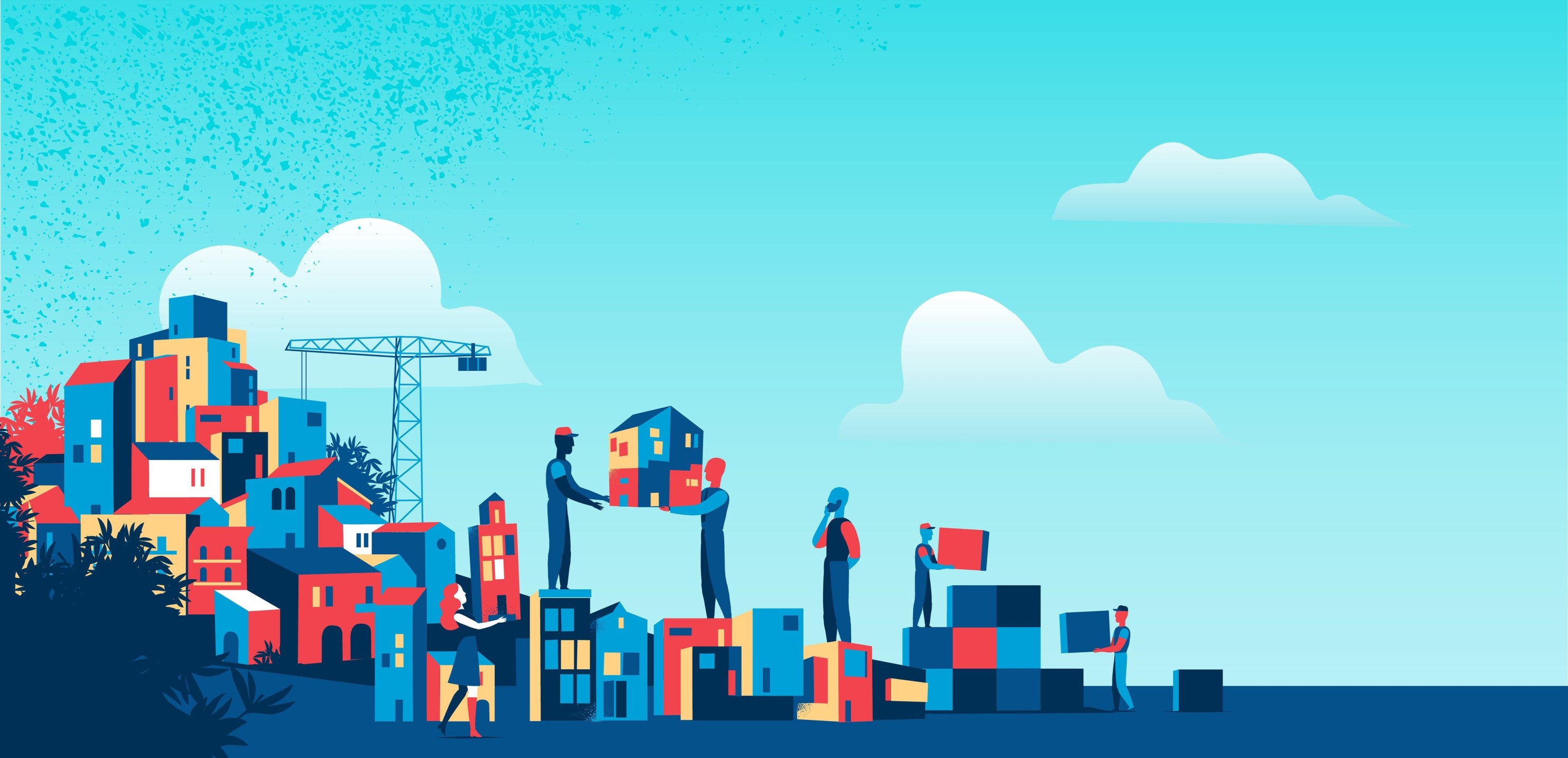The European Policy context: strategies and legislation
Construction and demolition waste (C&DW), such as scrap metal, used cement or wood products, currently comprise the most significant waste stream in the European Union. This is mainly because, at present, many of the materials used in demolition and renovation works are unsuitable for reuse or high-grade recycling.
Circular economy-inspired actions can revert such a state-of-the-art, mainly waste prevention and increasing the recycling quality and quantity produced by building sites. Such practices can, in turn, help achieve EU waste policy objectives. Currently, EU countries are striving to reduce waste and accomplish high-rate recovery targets (70% was reached in 2020).
While the high volume and nature of construction waste pose several management challenges, these also present a clear opportunity for the implementation of effective circular economy practices linked to waste management and recycling. Low-value backfilling operations (e.g. using collected waste and rubble to fill holes on construction sites) and low-grade recovery (e.g., recycled and crushed cement or aggregates in road construction) are essential to implement these practices. Just as importantly, clear information on recycled materials is critical to improving users’ trust towards circular economy practices.
The European Commission considers the construction sector a priority for its circular economy action plan. For this reason, in March 2020, the European Commission adopted the new circular economy action plan (CEAP). This is one of the main building blocks of the European Green Deal. A transition towards a circular economy will reduce ecological pressure, mitigate biodiversity loss, and ensure sustainable development.
Through a diverse set of non-legislative and legislative measures, the action plan focuses on the product’s entire lifecycle. These include product design, sustainable consumption, waste prevention and reduction, consumer empowerment, investment in sectors relevant to circularity (e.g. electronic appliances and packaging), and multi-level governance plans.
The role of standardisation
Standardisation measures contribute to the implementation of circular economy practices developing frameworks, guidance, supporting tools and requirements for the sustainable use of resources and energy while maintaining the value and quality of materials all along the cycle. Examples include ensuring quality waste management and prevention and enhancing recycling quality and quantity.
The EU’s single market provides a perfect scenario to set sustainability standards and influence product design and value chain management patterns. Within CEN, technical committees TC350 has dealt with the sustainability in construction work through the publication of documents such as EN 15643:2021 "Sustainability of construction works – Framework for assessment of buildings and civil engineering works" and EN 15978:2011 "Sustainability of construction works – Assessment of environmental performance of buildings – Calculation method among others, all of which have been adopted as Irish standards by NSAI". Moreover, sub-committee CEN/TC 350/SC 1 was established in 2021 to produce standards in the field of circular economy in the built environment, with a particular emphasis on developing guidelines and requirements to facilitate the transition to a circular economy.
Currently, the main standard linked to circular economy, which also considers green buildings is the recently published ISO 20887:2020 "Sustainability in buildings and civil engineering works – Design for disassembly and adaptability – Principles, requirements and guidance" advocates the adoption of standard-size components to reuse building components. This is accomplished through the adoption of principles of design for disassembly and adaptability (DfD/A). These are aimed to optimise both the service life and the design life. Aspects of design for disassembly can also be used to reduce and/or prevent waste and increase resource efficiency by encouraging alternative considerations at the project definition phase.
A circular economy standard currently under development is ISO/WD 59004: "Circular economy — Terminlogy, Principles and Guidance for Implementation" aims to develop frameworks, guidance, supporting tools and requirements for the implementation of activities of all involved organisations to maximise the contribution to sustainable development. Within this standard, three more also current under development are linked to circular economy. These are ISO/WD 59010: "Circular economy — Guidelines on business models and value chains"; ISO/WD 59020: "Circular economy — Measuring circularity framework" and ISO/CD TR 59031: "Circular economy – Performance-based approach – Analysis of cases studies".


